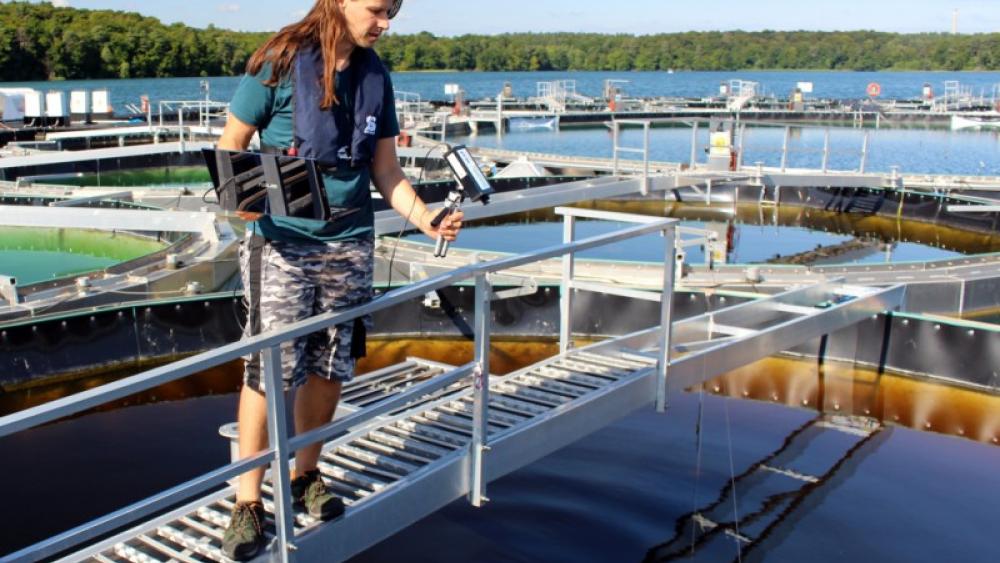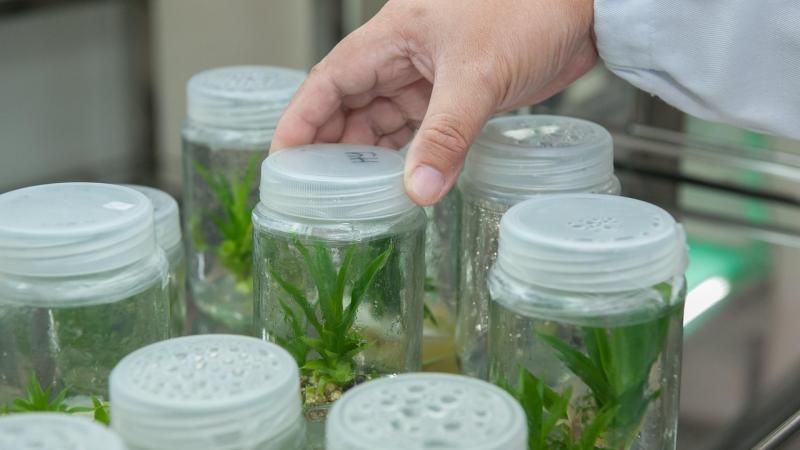
© Martina Bauchrowitz
Jechow still remembers what he said to his wife, when they stood in front of the LakeLab scale model in 2012 after their return from Australia; "This facility is awesome! These scientists can work outside to do their research". Until then, the outdoor enthusiast and physicists with specialisation in optical methods had typically worked in darkened and sterile laboratories. Then in the beginning of 2015 he came across the announcement for a physicist at the LakeLab and although it did not match with his plans for the future, he applied and was offered the position. "This is", he says, "a new horizon, a new challenge. In this job I can merge my outdoor passion with my profession." And even more important: his new work at the LakeLab focuses on a crucial aspect of global environmental change and is of vital concern for humanity. It is not something inconceivable like the quantum states of atoms, where all people say, "What do we do with this?".
Utilizing various spectrometers, Jechow studies how light of different wavelengths spread in the differently treated mesocosms and what spectral colors are emitted. We must imagine it like this, he explains. "We have put different amounts of humic substances into the mesocosms. The more we added, the browner the water appears to us, because it is permeable to light in the red range, while light of other wavelengths is absorbed or scattered in the water. By contrast, the water in Lake Stechlin and in those mesocosms where no humic substances have been added is permeable to light in the green range. Therefore we consider it to be blue-green".
This year Jechow has two research aims. On one hand he would like to know how the aquatic organisms will be affected when certain spectral ranges such as the green wavelengths are missing in those mesocosms that contain humic substances. On the other hand he is working together with specialists in remote sensing who measure the same parameters with different devices from far away. The idea is to calibrate those instruments used in satellites or aircrafts with its spectrometer data. If that succeeds, it could be possible — by means of remote sensing of the color that a lake emits — to deduce the content of dissolved substances or algae. This year's experiment at the LakeLab, with the many differently treated mesocosms in close proximity in which many biologically relevant parameters are measured, offers best conditions for this type of research.
While talking, Jechow becomes more and more enthusiastic about his work. Then suddenly, he looks up to the sky and pulls out his smartphone. Actually, he still wanted to do some measurements. He hastily turns on the display and opens the weather app — it seems that the sun let him down this time. Since he needs a clear sky for his analysis, it may work tomorrow in the early morning. But for now Jechow has to leave and prepare his equipment, so that everything is ready.
Andreas Jechow
has been working at the IGB since May 2015 and is guest scientist at the GFZ German Research Centre for Geosciences in Potsdam, where he also has his office in the Remote Sensing group of Luis Guanter. Until 2006 he studied Technical Physics and Photonics at the University of Applied Sciences Brandenburg and finished his PhD thesis on laser technology at the University of Potsdam in 2009. During his postdoctoral project at the University of Brisbane, Australia he dealt with fundamental research questions and examined how individual atoms can be manipulated with lasers at ultra-cold temperatures.




